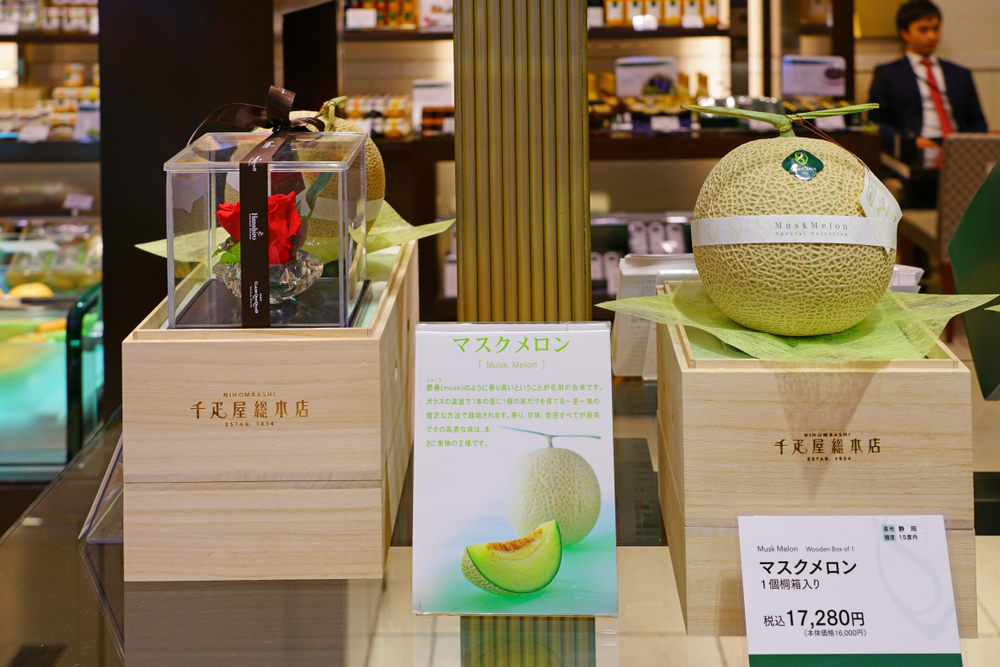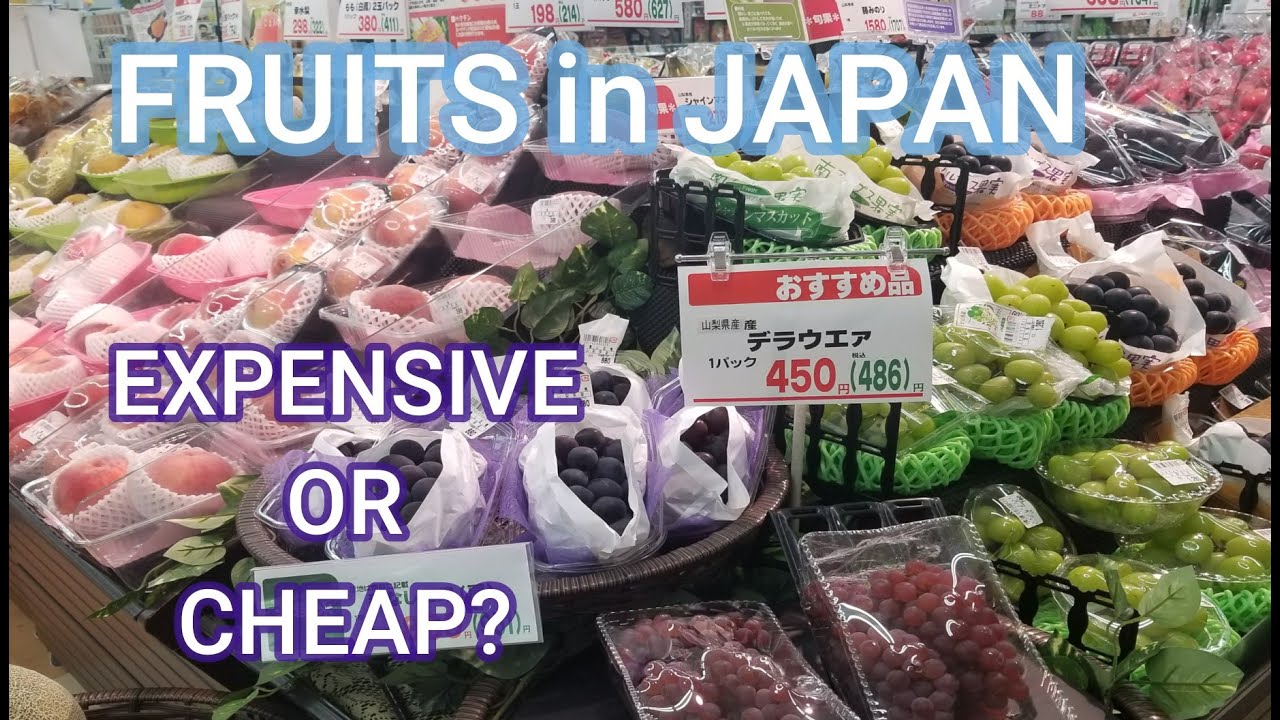4 Reasons Why Fruit Prices Are Expensive In Japan
Why fruit prices are expensive in Japan is a common question asked by many. Japan is known for its high cost of living and the high prices of fruits in the country are no exception.
May 05, 20235.8K Shares277.3K Views

Why fruit prices are expensive in Japanis a common question asked by many. Japan is known for its high cost of living and the high prices of fruits in the country are no exception.
Despite being a country with advanced agricultural technology, fruits in Japan can be priced significantly higher than in other countries. In this article, we will explore the reasons behind why fruit prices are expensive in Japan.
Why Fruit Prices Are Expensive In Japan
Japan is a country where the cost of living is generally high, and the price of fruits is no exception. Here are four reasons why fruit prices are expensive in Japan.
High Production Costs
High production costs are one of the major reasons why fruit prices are expensive in Japan. The country has a relatively small amount of arable land, which means that much of the fruit needs to be grown in greenhouses or imported from other countries.
In addition, Japan has strict regulations on the use of pesticides and fertilizers, which can drive up the cost of production.
Furthermore, Japan's labor costs are among the highest in the world. Farmers need to pay high wages to their workers, which adds to the cost of producing fruit.
This is particularly true for labor-intensive crops such as strawberries, which require constant attention and care.
The Japanese government also subsidizes its agriculture industry heavily, which can lead to overproduction of certain crops, such as apples and grapes, and thus a lower price for those crops.
On the other hand, crops that are not subsidized, such as tropical fruits like mangoes and bananas, are much more expensive in Japan.
Lastly, Japan has a culture of gift-giving and a tradition of presenting fruit as gifts for special occasions. This has led to a demand for high-quality, aesthetically pleasing fruits, such as perfectly round and unblemished apples and peaches. These fruits are often sold at premium prices, as they are considered luxury items.
All of these factors contribute to the high cost of fruit in Japan, making it one of the most expensive countries in the world to buy fresh produce.
Limited Agricultural Land
Another reason why fruit prices are expensive in Japan is the limited agricultural land available in the country. Japan is a mountainous country with only about 12% of its land suitable for farming.
This limited land availability creates fierce competition among farmers, leading to high land prices and high costs of production. As a result, farmers need to charge higher prices for their fruits to cover their production costs and make a profit.
Additionally, the limited land means that many fruits have to be imported, leading to additional costs such as transportation and import taxes, which are also passed on to consumers.
Quality Standards
Another reason why fruit prices are expensive in Japan is due to the country's strict quality standards. Japan has high expectations when it comes to the appearance, taste, and texture of their fruits.
Farmers must meet strict regulations to ensure that their produce is of the highest quality, which can be a costly and time-consuming process.
For example, many Japanese fruits are grown under specific conditions, such as being grown in special soil, using only natural fertilizers, and being carefully monitored for pests and diseases.
This level of attention to detail results in a premium product, but it also drives up production costs and, therefore, prices.
Additionally, many fruits in Japan are grown using traditional methods, which can be more labor-intensive and require more resources than modern agricultural practices.
This can make it more expensive for farmers to produce high-quality fruit, which is then reflected in the higher prices consumers pay at the market.
Cultural Significance
Another reason why fruit prices are expensive in Japan is due to the cultural significance of fruit. In Japan, fruit is not just considered a food item but also a luxurious gift to give to someone.
In fact, fruit is often given as a gift for special occasions such as weddings, business meetings, and other important events. The higher the quality and the more exotic the fruit, the more prestigious the gift is considered to be.
As a result, there is a high demand for premium fruits in Japan, which drives up the prices. For example, it is not uncommon to see melons priced at over 10,000 yen (about $100) or more for a single melon.
Some other highly prized fruits in Japan include peaches, grapes, and strawberries. These fruits are often grown in limited quantities and carefully monitored for quality, making them even more expensive.

THE COST OF FRUITS IN JAPAN'S SUPERMARKET | Expensive Fruits in Japan | Expensive Japanese Fruits
How Does Japan's Climate Affect Fruit Prices?
Japan's climate affects fruit prices in several ways. The country has a humid, subtropical climate in the south and a temperate climate in the north.
This means that some fruits, such as citrus fruits, can be grown in the southern regions all year round, while others, such as apples and pears, are grown in the north during the summer months.
However, the climate can also lead to natural disasters such as typhoons and earthquakes, which can damage crops and disrupt supply chains, causing prices to rise.
Additionally, the need for climate-controlled storage and transportation to maintain the quality of fruits also adds to the cost of production and ultimately affects the prices for consumers.
Role Of Japanese Traditions In Fruit Pricing
Japanese traditions play a significant role in the pricing of fruit. Fruits are considered a luxury item in Japan and are often given as gifts during special occasions such as weddings, births, and funerals.
The act of gift-giving is deeply rooted in Japanese culture, and the quality and price of the gift are important factors that reflect the giver's respect and appreciation for the recipient.
Moreover, fruit is also considered a symbol of wealth and prosperity in Japan. Hence, high-quality fruits with perfect appearance, texture, and taste are highly valued, and consumers are willing to pay a premium price for them.
This cultural significance of fruit has created a demand for premium and high-end fruits, which further drives up the prices.
In addition, Japan has a long history of fruit cultivation, and traditional farming practices are still used in some areas. These practices are time-consuming and labor-intensive, making the production of fruits more expensive.
Furthermore, Japan's aging population has also affected the cost of fruit as it has led to a shortage of labor in the agriculture industry.
Overall, the cultural significance of fruit, traditional farming practices, and a shortage of labor are some of the factors that contribute to the high cost of fruit in Japan.
People Also Ask
How Expensive Are Fruit Prices In Japan Compared To Other Countries?
Japanese fruit prices can be up to ten times higher than in other countries due to factors such as limited farmland, strict quality standards, and a cultural emphasis on gift-giving.
Why Are Japanese Fruits So Expensive?
Japanese fruits are expensive due to a variety of factors, including limited farmland, high labor costs, strict quality standards, and a cultural emphasis on gift-giving.
What Fruits Are Particularly Expensive In Japan?
Fruits that are particularly expensive in Japan include strawberries, melons, and grapes. In some cases, a single melon can cost several hundred dollars.
Is It Worth Buying Expensive Fruit In Japan?
While the prices of fruit in Japan may be high, the quality is also generally quite high. For some people, the taste and experience of eating high-quality Japanese fruit is worth the cost.
How Do Japanese Farmers Grow Such High-quality Fruit?
Japanese farmers use a variety of techniques to grow high-quality fruit, including careful pruning, hand-pollination, and strict quality control measures.
Additionally, many fruits in Japan are grown in greenhouses to protect them from the elements and ensure consistent quality.
Final Thoughts
Why fruit prices are expensive in Japan can be attributed to various factors such as the limited land available for agriculture, high demand for luxury fruits, and strict quality control measures.
Japan's unique cultural and economic environment also plays a significant role in shaping the high fruit prices.
While it may seem surprising to some visitors, it is essential to understand and respect the cultural significance and value placed on high-quality fruits in Japan.
Latest Articles
Popular Articles